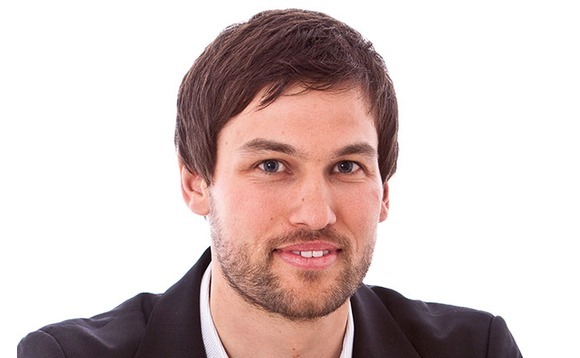
Q&A: Social impact investing in Germany

German social impact fund managers Erwin Stahl of Bonventure and Ananda Ventures' Johannes Weber talk to Harriet Bailey about past endeavours and present challenges
Erwin Stahl is managing director of BonVenture. He has invested in seed and early-stage companies for almost 20 years, beginning his career in 1996 as a project manager at Wellington Partners' Munich office. After three years, Stahl moved to Upside Ventures to become a managing partner. He has been in his current role since January 2003.
Johannes Weber (pictured) is managing partner at Ananda Ventures alongside Florian Erber. Weber's involvement with sustainable investing began in 2006 when he took a stake in Panda Investment Management, a former partner of the World Wide Fund for Nature. He subsequently founded the Social Venture Fund.
Harriet Bailey: Why did you choose to become a venture capitalist for social entrepreneurs?
Erwin Stahl: My background is pure venture capital. I was approached by the four founding family offices in 2002 about managing a social fund. Before, I was only focused on the financial return and I had to learn that the social dimension could play a substantial role. For me, it was a new way to use established methods from venture capital in a different area.
At that point we didn't know if we could set up a fund structure, or whether there were social entrepreneurs in the German-speaking area who wanted to reduce social problems, or if we could even find investors.
Johannes Weber: I'm an entrepreneur. I started off with an online business and then moved to for-profit asset management and did that for a while. I then moved into sustainable investing with my own asset management company. We thought that was game-changing in itself, in the way we were improving social and ecological issues – but that's hard to do simply by investing in public stocks. Being an entrepreneur, investing directly and working with other entrepreneurs on improving social issues, is much closer to my heart and is why I was motivated to move into this space and set up this fund.
HB: What was the fundraising process like?
JW: Raising the first fund was actually quite difficult. I had raised more than €100m twice before, but found out social entrepreneurship is something people don't really understand and can't really relate to. Educating the market took a while.
Raising the first €7m took a couple of months longer than I thought it would but, once you have generated a couple of examples and scaled them up, you are able to take them to investors and it becomes easier to raise a fund. Investors – particularly those who come from a for-profit world – need something such as Auticon, which is tangible and easy to understand.
ES: We didn't have carry in the first two funds, but the management fee was quite high at 3-4%. If you have a €5m fund and a 2.5% management fee, you can't pay a team, you won't be a professional intermediary and your management company won't be sustainable. We will lower the fee for the third fund, to around 2.5-3%, as we increase the volume. The third fund should be financially more attractive than the first two funds with better economies of scale.
We recently raised around €1m for a mission-related investment pilot fund just for foundations. This was to prove that it is possible to invest their endowments in a fund and to get a financial return from it.
HB: Have you faced any other issues as social impact funds?
ES: It's been costly to cope with new regulations, which came in when we were investing our second fund. We were the first fund manager to register as an EuSEF manager under the Alternative Investment Fund Managers Directive (AIFMD)*, but this was expensive. We spent €2,250 on registration fees for the German BaFin (Federal Financial Supervisory Authority) and €11,250 for the European Securities and Markets Authority (Esma). Our legal fees are up to around €20,000 as well.
The costs and the extra internal workload are too great for registration to be beneficial – it could really threaten the existence of social impact funds. The increased reporting requirements for EuSEF – both on impact and financial returns – put additional pressure on us. The regulations also stipulate that each investor in the fund has to commit a minimum of €100,000, and this has not always been the case for us in the past. The registration process is different elsewhere in Europe, but for us it has not been very easy or rewarding.
JW: Measuring impact is a complex task, but we look at beneficiaries that benefit from the action taken by the social enterprise and try to identify 5-10 key performance indicators (KPIs) at the beginning of the investment and put target values next to them.
The financial return for our second fund is forecast to be around 5-6% net IRR. We don't by definition go for lower financial returns than a traditional VC – the lower return comes from the fact we don't typically look at very disruptive technologies. If you want to be involved in this type of investing you have to look at the social and ecological impacts of what you're doing, otherwise it won't work on the financial side in the long term. If you have short-term horizons then sustainability sometimes suffers, but the long-term game won't work without it.
*The European Social Entrepreneurship Funds (EuSEF) Regulation came into force in July 2013. It facilitates access to funding for social entrepreneurs on the one hand and access to investment opportunities in social enterprises across Europe on the other. Under the regulation, 70% of a fund has to be invested in social enterprises, while up to 30% can be committed to non-qualifying investments.
The funds
Ananda Ventures currently has around €30m in assets under management across two funds. Although the first fund targeted €10m, it eventually closed on €7.3m. Ananda's second fund was more successful, closing on €22.3m in July last year. The vehicle had a target of €20m.
Investors committed at least €500,000 each and hail mostly from the UK and Germany. The largest investor in the vehicle is the European Investment Fund, which made its first commitment from its €250m Social Impact Accelerator. The HypoVereinsbank re-upped into the second fund alongside new backer UniCredit.
BonVenture manages three funds and has so far made around 30 investments. BonVenture I launched in 2003 and closed on €5m, from which it made eight investments. BonVenture II started investing in 2009 with a fund volume of €10.5m. The majority of backers are high-net-worth individuals.
The third fund has a target volume of €15-20m. A first close is planned for Q3 2015. It will target high-net-worth individuals, foundations and institutions, including the European Investment Fund. It will also increase its previous seed-stage investments of around €250,000-400,000 per portfolio company to growth capital investments of between €500,000-800,000.
Latest News
Stonehage Fleming raises USD 130m for largest fund to date, eyes 2024 programme
Sponsor acquired the public software group in July 2017 via the same-year vintage Partners Group Global Value 2017
Stonehage Fleming raises USD 130m for largest fund to date, eyes 2024 programme
Czech Republic-headquartered family office is targeting DACH and CEE region deals
Stonehage Fleming raises USD 130m for largest fund to date, eyes 2024 programme
Ex-Rocket Internet leader Bettina Curtze joins Swiss VC firm as partner and CFO
Stonehage Fleming raises USD 130m for largest fund to date, eyes 2024 programme
Estonia-registered VC could bolster LP base with fresh capital from funds-of-funds or pension funds









